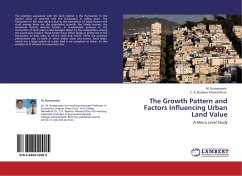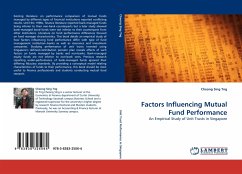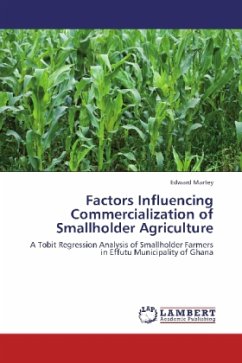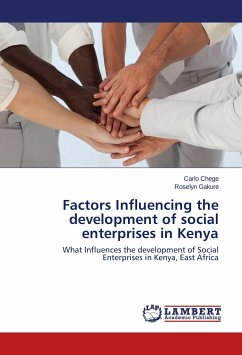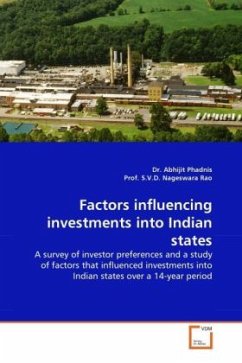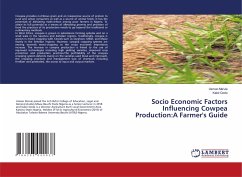
Socio Economic Factors Influencing Cowpea Production:A Farmer's Guide
Versandkostenfrei!
Versandfertig in 6-10 Tagen
27,99 €
inkl. MwSt.

PAYBACK Punkte
14 °P sammeln!
Cowpea provides nutritious grain and an inexpensive source of protein to rural and urban consumers as well as a source of animal feeds. It has the potentials of alleviating malnutrition among poor farmers in Nigeria. To attain its full potential as a means of alleviating poverty and provision of food the practices of its production needs to go beyond the traditional or rudimentary methods. In West Africa, cowpea is grown in subsistence farming systems and on a small scale in the Savanna and Sahelian regions. Traditionally, cowpea is grown in mixed cropping with Cereals such as Sorghum, Millet,...
Cowpea provides nutritious grain and an inexpensive source of protein to rural and urban consumers as well as a source of animal feeds. It has the potentials of alleviating malnutrition among poor farmers in Nigeria. To attain its full potential as a means of alleviating poverty and provision of food the practices of its production needs to go beyond the traditional or rudimentary methods. In West Africa, cowpea is grown in subsistence farming systems and on a small scale in the Savanna and Sahelian regions. Traditionally, cowpea is grown in mixed cropping with Cereals such as Sorghum, Millet, and Maize mainly in the Sehelian regions. However, cowpea cropping systems are moving towards mono-cropping as the crops economic importance increase. The increase in cowpea production is linked to the use of improved technologies including high yielding varieties, improved crop protection and production practices.The profitability of the cowpea cropping system defends mainly on the varieties used (local and improved), the cropping practices and management (use of chemicals including fertilizer and pesticides), the access to input and output markets.






